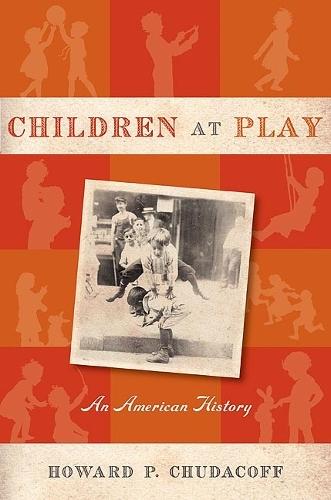Full Product Details
Author: Howard P. Chudacoff
Publisher: New York University Press
Imprint: New York University Press
Dimensions:
Width: 15.20cm
, Height: 1.80cm
, Length: 22.90cm
Weight: 0.386kg
ISBN: 9780814716656
ISBN 10: 0814716652
Pages: 269
Publication Date: 01 September 2008
Audience:
Professional and scholarly
,
Professional and scholarly
,
Professional & Vocational
,
Professional & Vocational
Format: Paperback
Publisher's Status: Active
Availability: Manufactured on demand

We will order this item for you from a manufactured on demand supplier.
Reviews
Fascinating and provocative.... Chudacoff builds up a scathing critique of modern parents' intrusion in children's play. NEW YORK TIMES BOOK REVIEW [Chudacoff's] history demonstrates that the topic of play is anything but trivial. And by showing us where we've been, he can help us decide where, as a culture, we want to go. WILSON QUARTERLY The tension between how children spend their free time and how adults want them to spend it runs through Chudacoff's book like a yellow line smack down the middle of a highway. NEW YORK TIMES A strong addition to the growing literature on childhood, but it's also good reading for adults seeking a fresh perspective on their own kids. AMERICAN HERITAGE
A fascinating and provocative survey... Chudacoff builds up a scathing critique of modern parents' intrusion in children's play. -New York Times Book Review Can it be true that children no longer know how to play? Chudacoff argues otherwise. Although adults have perennially felt compelled to protect children and guide their play-encouraging board games, for instance, in the 1800s-to play is, intrinsically, to not do exactly what the grown-ups say. -The Atlantic Once upon a time in the U.S., children played outside, with siblings and family members. But as urbanization increased, so did safety concerns. Then, there was the rise of commercial toys in the 20th century. The result - the birth of self-structured play created by children themselves. These were the findings made bye Howard Chudacoff, professor of history at Brown University, and author of Children at Play: An American History. -Millie Acebal Rousseau,Vista Magazine At a time when children's play seems under siege, Howard Chudacoff's history-the first of its kind-arrives to tell us what we are letting slip away... His history demonstrates that the topic of play is anything but trivial. And by showing us where we've been, he can help us decide where, as a culture, we want to go. -Wilson Quarterly This book is a model work of synthesis and a truly enjoyable piece of scholarship. -American Historical Review In this wonderfully polished, scholarly treatment of children and play from Colonial times to the present, Chudacoff uses excellent historical methodology and perceptive psychological insights, putting primary sources to good use, as he presents an illustrated, chronological history of children at play from ages six to 12. -Library Journal A fascinating look at the culture of childhood through children's games. -American Quarterly The tension between how children spend their free time and how adults want them to spend it runs through Chudacoff's book like a yellow line smack down the middle of a highway. His critique is increasingly echoed today by parents, educators and children's advocates who warn that organized activities, overscheduling and excessive amounts of homework are crowding out free time and constricting children's imaginations and social skills. -The New York Times
"""Fascinating and provocative... Chudacoff builds up a scathing critique of modern parents' intrusion in children's play."" New York Times Book Review ""[Chudacoff's] history demonstrates that the topic of play is anything but trivial. And by showing us where we've been, he can help us decide where, as a culture, we want to go."" Wilson Quarterly ""The tension between how children spend their free time and how adults want them to spend it runs through Chudacoff's book like a yellow line smack down the middle of a highway."" New York Times ""A strong addition to the growing literature on childhood, but it's also good reading for adults seeking a fresh perspective on their own kids."" American Heritage"
Author Information
Howard P. Chudacoff is George L. Littlefield Professor of American History at Brown University. His many books include How Old Are You? Age Consciousness in American Culture, and The Age of the Bachelor: Creating an American Subculture.




